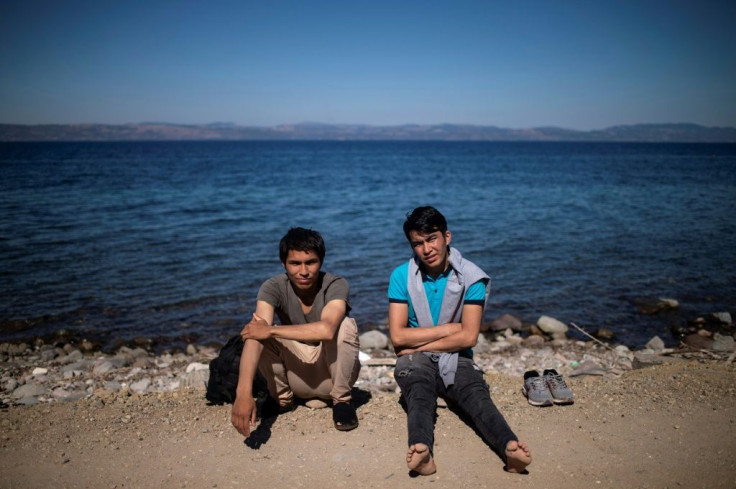Turkey Must 'Take Responsibility' For Migrants, Says Greece

Greek Prime Minister Kyriakos Mitsotakis on Friday called on Turkey to "take responsibility" for a renewed wave of migrants to Greece, and for an EU-Turkish deal to be revised so Athens can speed up the return of rejected asylum-seekers.
"Turkey must take responsibility" and "control the migrant flow in the Aegean Sea," the conservative Greek leader said during a debate in parliament on migration.
Greece has felt under increasing pressure. For the first time since 2016, the country has become the main port of entry into the European Union for migrants and refugees arriving via Turkish shores.
The UN refugee agency (UNHCR) announced on Tuesday that arrivals by sea from Turkey to Greece, mostly Afghan and Syrian families, increased to 10,258 in September.
It said this was the highest monthly total since 2016, when the European Union reached an accord with Turkey to stem the flow of arrivals.
Turkey has welcomed nearly 3.6 million refugees, the vast majority from neighbouring war-ravaged Syria.
Turkish President Recep Tayyip Erdogan threatened in early September to allow a new wave of migrants to go to the EU if he did not receive more international aid.
Ankara wants to create in Syria a "security zone" so migrants could return there.
But after a deadly fire at an overcrowded refugee camp on the Greek island of Lesbos on September 29, Athens vowed to return 10,000 migrants who fail asylum requirements to Turkey by the end of 2020.
In four and a half years under the previous left-wing government, Turkey took back fewer than 2,000 people.
Necessary revisions to the EU-Turkey deal to accelerate returns will be discussed at the EU summit later this month.
Mitsotakis insists that most new arrivals to Greece are "economic migrants" from Afghanistan or sub-Saharan Africa rather than refugees from Syria.
© Copyright AFP 2024. All rights reserved.











